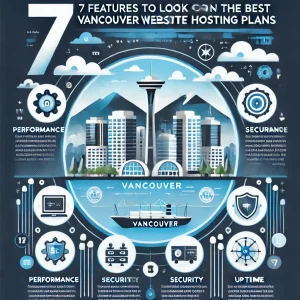 It’s really all too easy to assume that you need to have some type of special savvy mixed with a whole lot of know-how to get your newly-formed website ranking sufficiently. Truth is that’s not the case. You WILL get your money’s worth if you hire an SEO expert to optimize your site, but for many of you money may be a little tight and budget constraints are what they are.
It’s really all too easy to assume that you need to have some type of special savvy mixed with a whole lot of know-how to get your newly-formed website ranking sufficiently. Truth is that’s not the case. You WILL get your money’s worth if you hire an SEO expert to optimize your site, but for many of you money may be a little tight and budget constraints are what they are.
Here at 4GoodHosting, we’re like any other good Canadian web hosting provider in that we like to see our newbies be successful, and out of the gate as much as possible. SEO isn’t the be-all end-all of making that happen, but it factors in quite considerably.
There are quite a few things you can do to speed up this process, helping your site get better search engine rankings and more traffic much sooner than you’d expect. Here are 10 SEO tips specifically chosen with new websites in mind, and ones that are decidedly doable for even those of you with very little in the way of established SEO application knowledge.
- Start be targeting low competition keywords at the outset
When a site is first launched, it will have a very low authority with Google. This means it will rank worse than established competitors for high competition keywords. You’re perfectly free to target those keywords, but the speediest way to generate new traffic to your site is to target keywords that are less competitive.
You can determine how competitive a keyword is by using Google’s Keyword Planner. This will show you whether competition for a term is high, medium or low. Finding keywords which are less competitive gives you increased chances of ranking for them and receiving the traffic which they send. Choose to target highly competitive keywords only and you may not rank at all,meaning no organic traffic in the early days. This method is a good technique while you slowly establish your site authority.
- Locate your main keyword in the page’s title tag
Search engines use title tags and other meta information to determine the subject matter of each page or post on your website. This is very much essential, and so when you create your new website it’s highly advisable to have your page title tag featuring the most important keyword or term. Do it, and then when someone searches for that the search engines will quickly identify that your page has relevant content.
There’s a real link between keywords in the title tag and search engine rankings, so make the most of this technique. Also make sure that you include your keyword in the page’s meta description.
- Titles Are For Searchers, Not Search Engines
Getting ranked number one in Google is not a guarantee of any volume of traffic. You’ll only get people coming to your website if your result gets clicked on. When you write the title of your page or blog post, you STILL have to write it in a way that will make grab the interest of a visitor who may be a potential reader. Your title needs to pique their interest.
Let’s say you run an online store. Maximizing sales is made possible by writing titles that attract searchers who are ready to buy. Simply adding the word ‘buy’ to your keyword, for example, can do wonders.Titles like these are much more likely to get clicked on and result in a sale.
- Ensure Titles Don’t Get Cut Off
Hard to argue that space isn’t precious when it comes to search engine results. When it comes to titles, only about the first 70 characters get shown, and that number is sometimes less for mobile devices. The allowed length for meta descriptions is about 100 characters.
If your titles and meta descriptions are too long, they’ll be cut off. This can have a negative effect on click-through rates as searchers want all the information in front of them before deciding whether to click or not.
Make sure you keep within the limits and work with the title to be able to put your keywords near the beginning. Then they will be always be shown, and you’ll benefit.
- Clear the Way to Your Content
When searchers choose to visit your site, they expect to find the content they’ve been searching for as soon as they land on your page. To ensure this happens, don’t force them to scroll half way down the page before seeing the title and don’t overload them with adverts and pop-ups.
Google puts value on ‘above the fold’ content, meaning the content you see before scrolling down. Browser-sized images with no text or too many header ads are not seen favourably.
- Optimize Images
It’s increasingly common for people to search for products by doing an image search. If they see something they find attractive, they’ll visit the site directly from Google’s image results. If you sell products on your website and have lots of images, you can create better ranking opportunities by optimizing them.
All you need to do is add a description to the alt text tag, for example, <img src=“photo-of-closet-organizer.png” alt=“closet organizer” />
It also helps to change the actual image name from the number given by your camera like ‘DCSN-832467.png to something search engines can read - ‘photo-of-smart-closet-organizer.png’
- Use AMP - Accelerated Mobile Pages
It’s possible to improve your search engine rankings by improving the speed with which your website loads. One of the best ways to accomplish this for mobile devices is by using accelerated mobile pages. These are lightweight versions of web pages designed to load very quickly on mobile phones.
AMP pages already rank highly for mobile searches, so it’s important to be receptive to this trend. Keep in mind that roughly 66% of our surfing is now done via mobile devices.
Another key to faster loading times is to make sure that your web host runs your website on a high-performance, fast loading server - and we’ve DEFINITELY got you covered there when you’re with 4GoodHosting.
- Add Internal Links
‘Link juice’ is a well-known phrase in SEO, and it refers to the fact that when you link from one page to another some of the ranking power of the linking page is shared with page being linked to.
If you’ve got a page that gets lots of traffic and want your other pages to rank higher, add an internal link from the high-ranking page to the ones where you want to see a bump up. Don’t overdo it, though: too many links will have a detrimental effect. No more than 3 is a good rule, and often times only 1 or 2 is best.
If you have just set up a new website, hopefully these8 tips given in this post will have got you pointed in the right direction for your site ranking in search engine results. From there, you should have more searchers to click through to your site. And that’s by and large what it’s all about when you’re in business online.











